Environmental awareness Math Worksheets for Ages 5-7
5 filtered results
-
From - To
Discover our engaging Environmental Awareness Math Worksheets designed for children ages 5-7! These fun and interactive activities seamlessly blend math with important lessons about the environment, helping young learners develop essential skills while fostering a sense of ecological responsibility. From practicing basic addition and subtraction using nature-themed problems to exploring simple word problems focused on sustainability, these worksheets make learning math enjoyable. Ideal for home or classroom use, our printable resources encourage kids to think critically about their impact on the world while enhancing their mathematical understanding. Download today and inspire your child’s love for math and the planet!
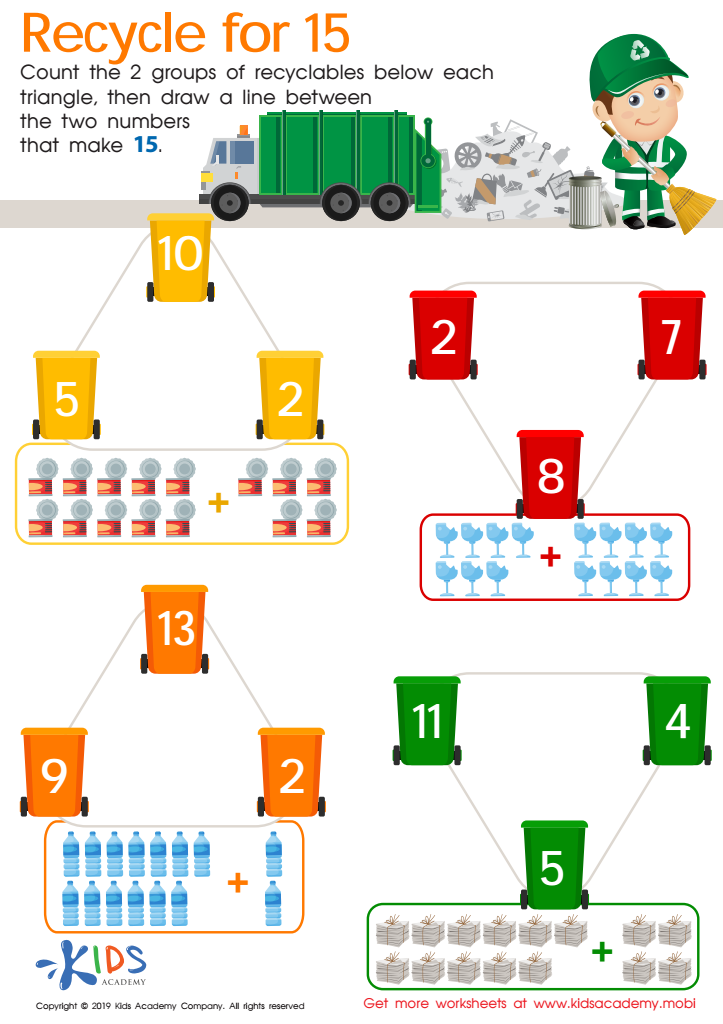

Recycle for 15 Worksheet
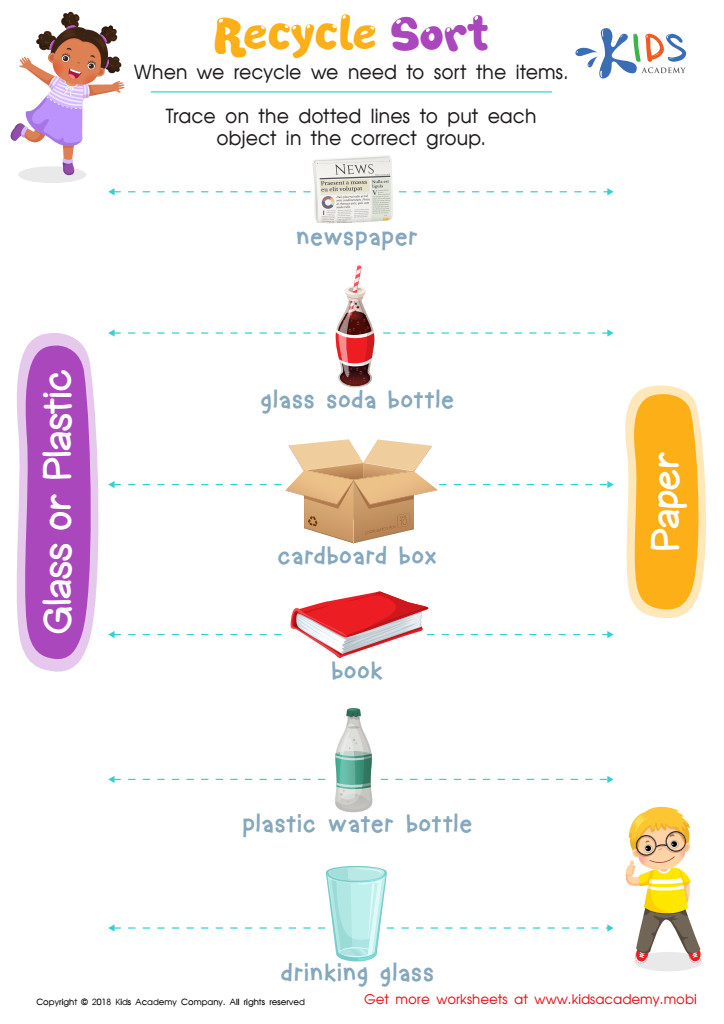

Recycle Sort Worksheet
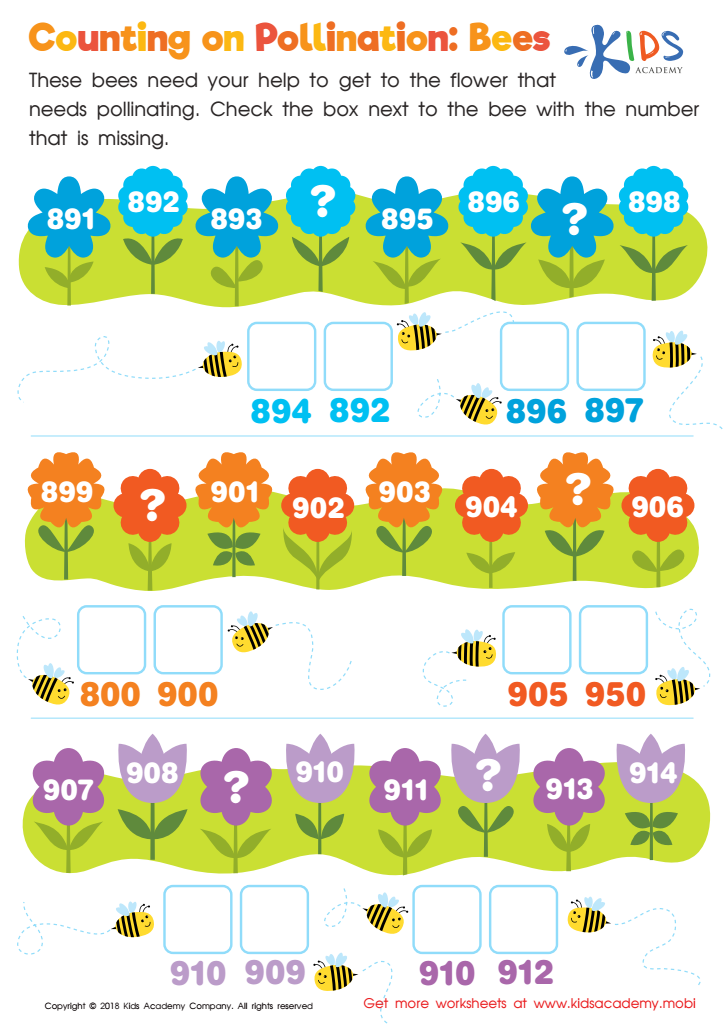

Counting on Pollination: Bees Worksheet
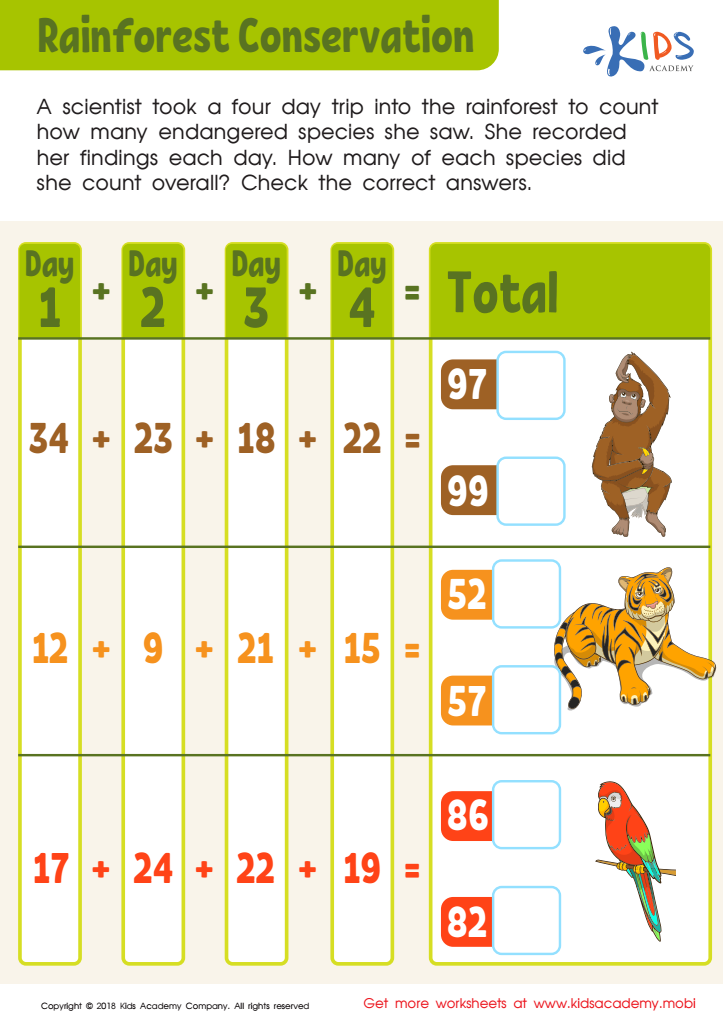

Rainforest Conservation Worksheet
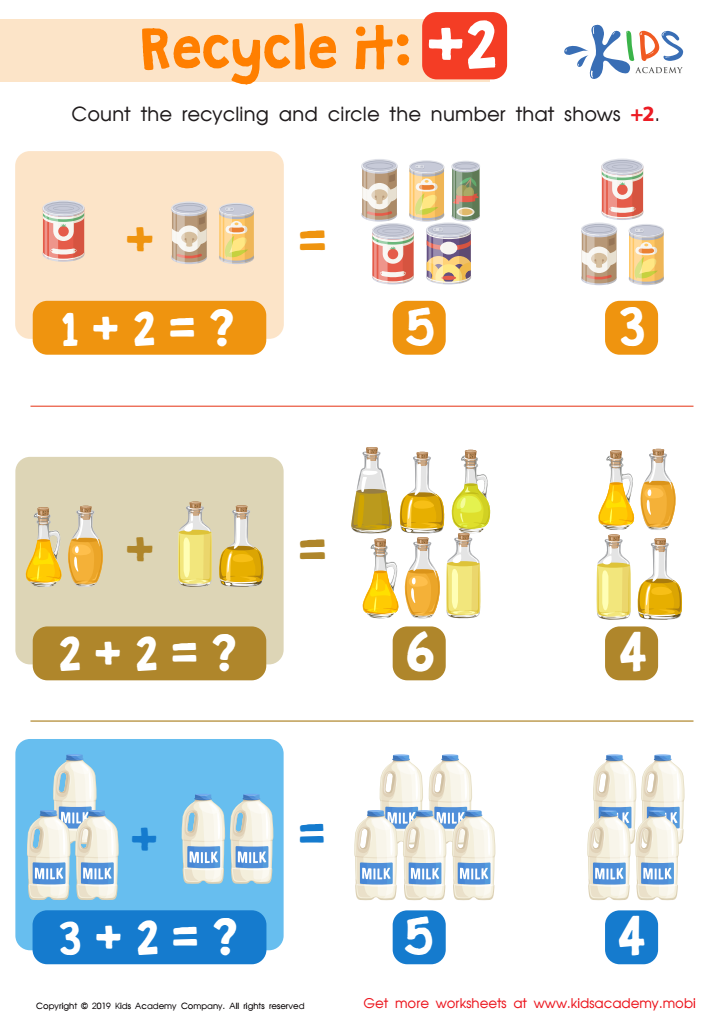

Recycle It: +2 Worksheet
Environmental awareness in math education for young children, ages 5-7, is crucial for several reasons. Firstly, introducing environmental concepts through math can foster a sense of responsibility towards nature from an early age. Young learners often engage with numbers and activities that can relate to real-world environmental issues, such as counting favorite trees in the playground or measuring recycling materials. This connection makes math both meaningful and relevant.
Moreover, math skills help children analyze data about environmental trends, such as tracking weather patterns or understanding the importance of conservation by graphing recycling habits. Engaging young learners with environmental topics promotes critical thinking and problem-solving abilities, essential skills for their future.
In a world increasingly impacted by environmental challenges, instilling awareness early can encourage future generations to prioritize sustainability. Teachers and parents can collaboratively use math games or activities that incorporate elements of nature, nurturing a love for both learning and the planet.
Ultimately, caring about environmental awareness in math fosters environmentally conscious individuals, preparing children not only to excel academically but also to become engaged and responsible citizens. It builds a foundation for children to make informed decisions that affect their lives and the world around them.

 Assign to My Students
Assign to My Students

















